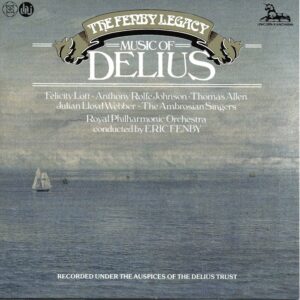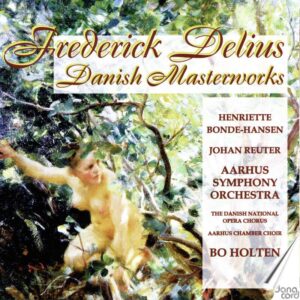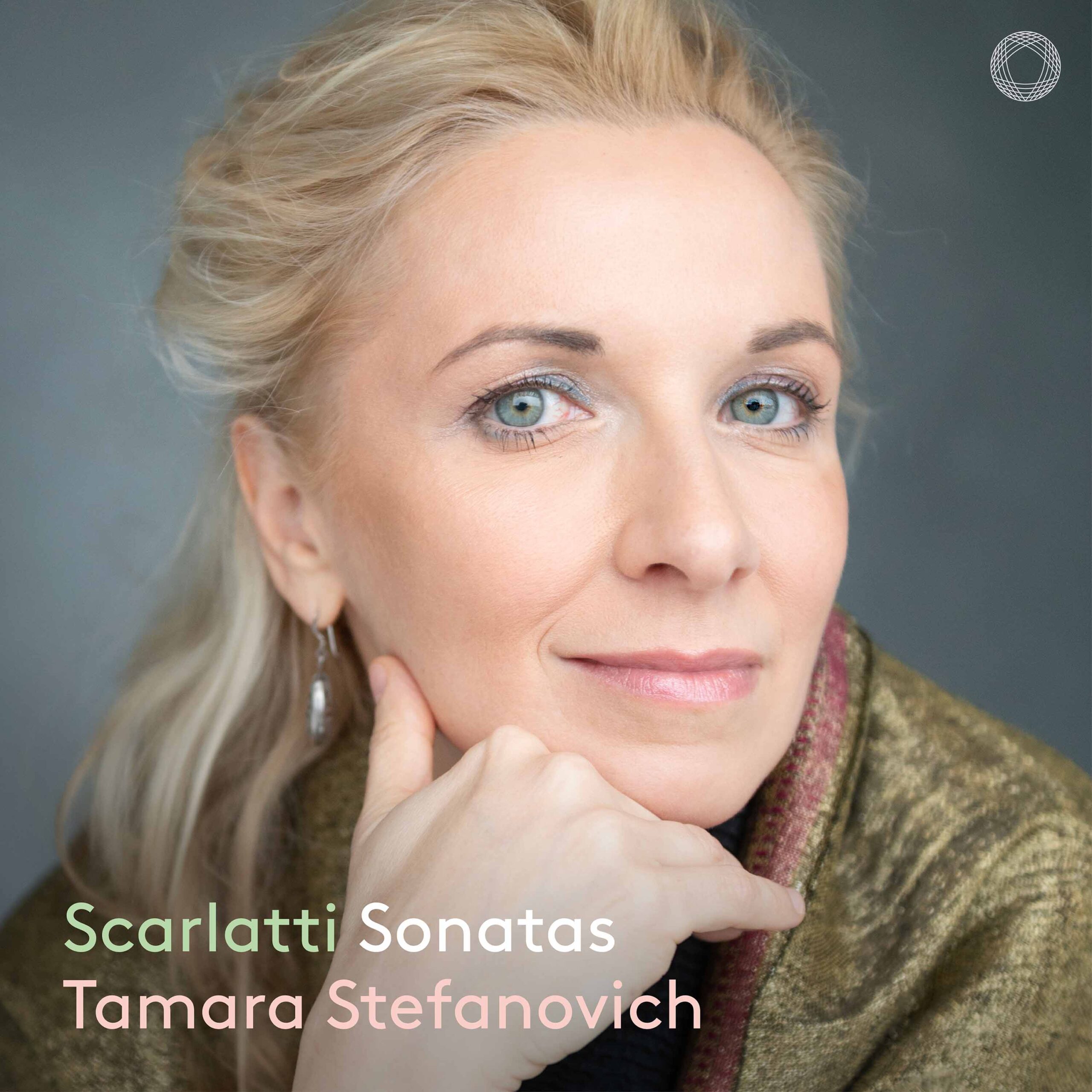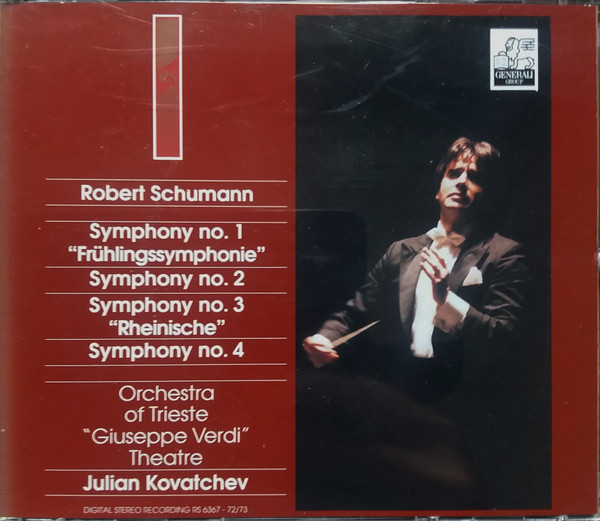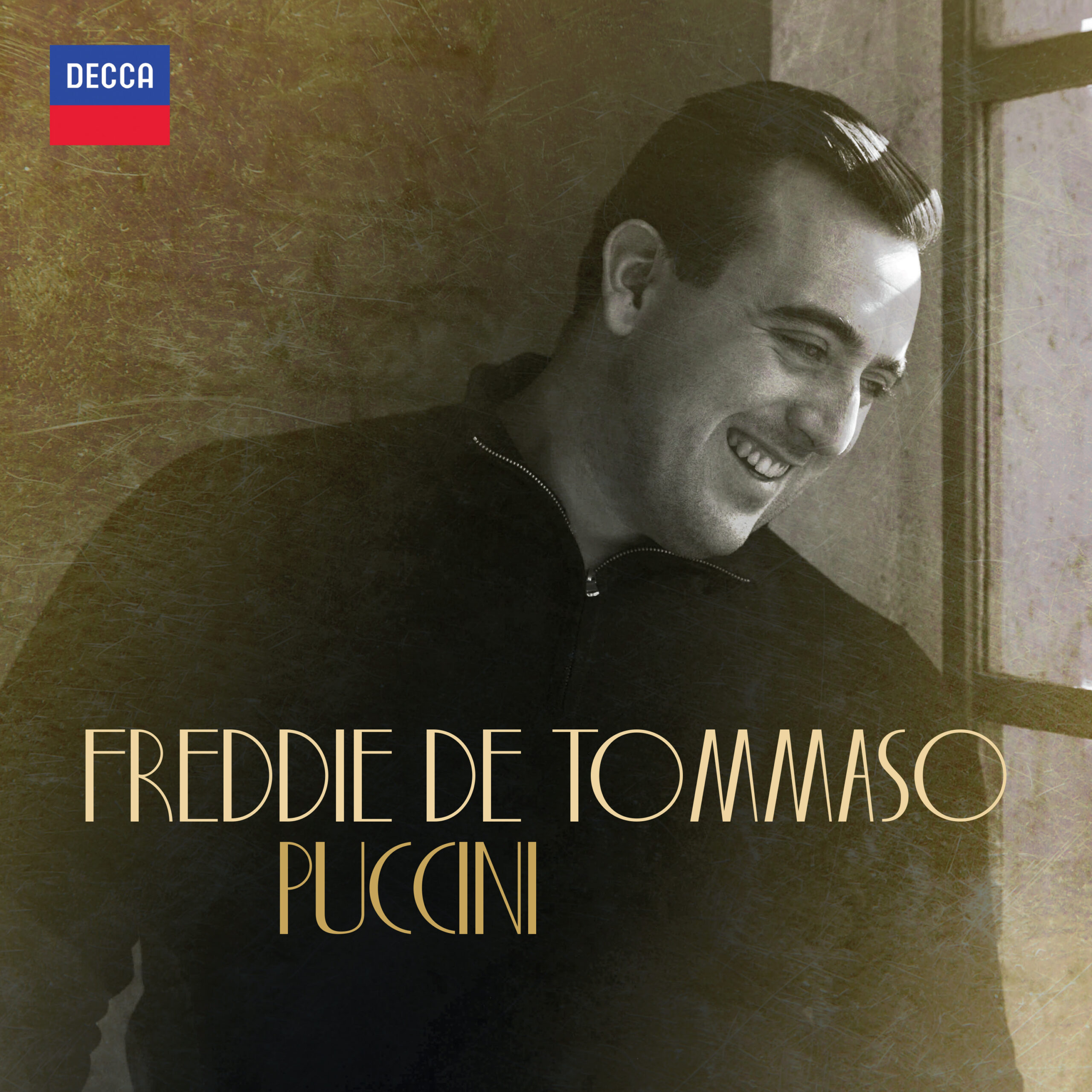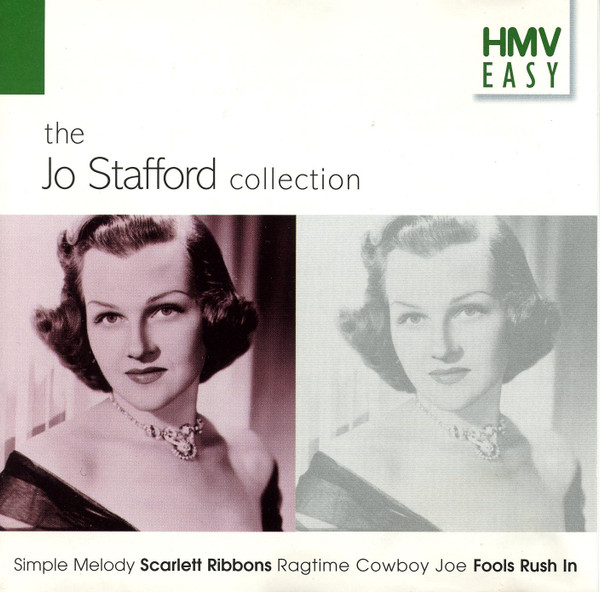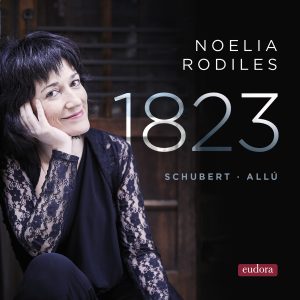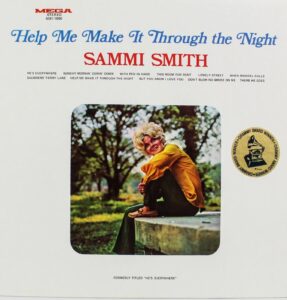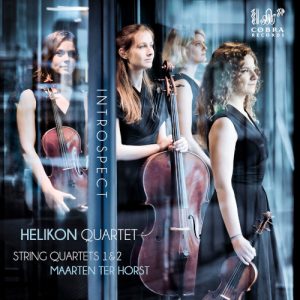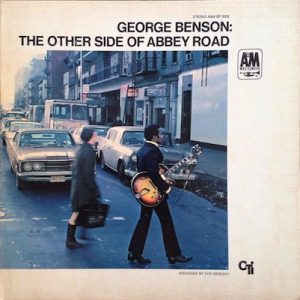The Fenby Legacy: Music of Delius. Royal Philharmonic Orchestra/Eric Fenby. Unicorn-Kanchana DKP (CD) 9008/9 (2 CDs; recorded 1981-3).
Songs of Farewell (The Ambrosian Singers). Idyll (Felicity Lott, s; Thomas Allen, b). Fantastic Dance. A Song of Summer. Cynara (Allen, b). Irmelin: Prelude. A Late Lark (Anthony Rolfe Johnson, t). La Calinda. Caprice and Elegy (Julian Lloyd Webber, vc). Two Aquarelles. Fennimore and Gerda: Intermezzo.
Frederic Delius: Danish Masterworks. Aarhus Symphony Orchwestra/Bo Holten. Danacord DACO CD 536 (recorded 2000).
En Arabesk (Johan Reuter, b; Danish National Opera Chorus and Aarhus Chamber Choir). Five Danish Songs; Seven Danish Songs (Henriette Bonde-Hansen, s). Fennimore and Gerda: Intermezzo. Two Danish Songs; Sakuntala (Reuter, b). Life's Dance.
If you don't know Frederick Delius (sic, despite Danacord's spelling), he was a late-Romantic-to-early-modern British composer; he actually preceded both Vaughan Williams and Walton, and lacks their forward-looking, astringent strain. His great interpreters have, unsurprisingly, been English: first, Sir Thomas Beecham (refined) and Sir John Barbirolli (warm); later, the two Sir Charleses—Groves and Mackerras. (Sir Thomas is considered the interpretive touchstone, but I'd like to put in my oar for the Mackerras performances, more focused without sacrificing warmth.) These albums offer "different" interpreters with less familiar approaches.
Program notes regularly describe Eric Fenby as Delius's "amanuensis"—per Oxford Languages, "a literary or artistic assistant, in particular one who takes dictation or copies manuscripts." As the aging composer gradually became both blind and paralyzed, he would dictate music—somehow—which Fenby contrived to figure out and notate, in what became an increasingly contentious relationship. (Fenby's assuming the role of Delius's principal caretaker couldn't have made things easier: in fact, by his own account, it left him exhausted.)
Thus, the Unicorn album ought to be valuable, if only because it sort-of-fulfills the documentary imperative: if we can't have Delius conducting his own music, after all, Mr. Fenby would represent the next best thing. The results, alas, don't live up to expectations.
Right off the bat, the Songs of Farewell come off as unfocused, literally. The choral sound is cloudy, and you can't understand a word—if you look up from the booklet for five seconds, you're lost. The notes inform us that the piece is for double chorus. As sometimes happens, the eight-part splits may have overtaxed the Ambrosians, with the stray soprano or tenor occasionally cutting through. The orchestra has little presence, save where the brass join in ringing climaxes.
The players produce more color elsewhere—even A Song of Summer, from the same Watford Town Hall sessions as the Songs of Farewell, proffers more varied woodwind timbres. But, on the evidence of it, Mr. Fenby wasn't the most skilled conductor. The reed solos, as in La Calinda, can come off as stiff rather than flowing, and the coherence little more than moment-by-moment.
Then, too, we have the soloists. Not-yet-Sir Thomas Allen, a fine operatic baritone, lets the texts chop up his line and close down his resonance, in the manner of many British singers; oddly, this makes him harder to understand. Not-yet-Dame Felicity Lott sounds pretty enough, with some float. In A Late Lark, Anthony Rolfe Johnson's smooth, heady tenor occasionally threatens to evanesce.
A few pieces here—the Irmelin Prelude and Fennimore and Gerda Intermezzo, La Calinda, and the Aquarelles for string orchestra—do come off nicely, but this just doesn't cut it as a basic library choice. Unicorn's original LP issue clearly had the program note on the jacket cover or a full-size insert; instead of resetting it for this issue, they've simply reduced it, leaving it all but impossible to read.
Delius apparently developed a strong affinity for Scandinavian culture during visits to the various countries; Danacord's program showcases the works he composed in Denmark during his various sojourns there. All the songs here, save Sakuntala, originally set Danish texts, though Delius, realizing the market niche would be narrow, had them published only in English and German translations. The opera Fennimore and Gerda, from which the Intermezzo is drawn, is based on Danish literature. Even the tone-poem Life's Dance began life as incidental music for a Danish play.
It's good to hear these recorded premières of the songs in their original state, but the tags Five Danish Songs, Seven Danish Songs, and Two Danish Songs are really unhelpful. (It's like the Second Viennese guys with Six Pieces for Orchestra, Five Pieces for Orchestra, etc.) The Five Songs, in conductor Holten's own orchestration, sound unusually dynamic; the Seven Songs, immediately after that, offer a more authentic sound.
The performances are lovely, though neither soloist is ideal. Johan Reuter brings a nice open-throat sound to En Arabesk, until his top strangles; he's altogether better later, particularly in a rousing, committed Sakuntala. Henriette Bonde-Hansen's clear, vibrant lyric voice could almost be a Nordic prototype; sometimes the top goes tremulous, at others it's full and free. The orchestra-only works, too, are distinctive. In the Fennimore Intermezzo—the one point of overlap between programs—the flexible woodwind soli anticipate, not just Vaughan Williams, but Ravel. And Holten captures the quirky buoyancy of Life's Dance, though I'd have preferred a fuller sonority.
Some songs within the groups end "up in the air," which shouldn't be a problem, save that the producers have left equal-length pauses between tracks -- particularly annoying between the Two Danish Songs.
stevedisque.wordpress.com/blog




